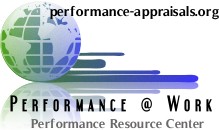Is It True That Employees Get "Punished By Rewards?"
 Alfie Kohn wrote a book entitled "Punished By Rewards" where he claims to present research based evidence to "prove" that rewards, whether for employees or children in school, actually damaged performance and motivation. Kohn is an excellent self-promoter and the book received a great deal of publicity. But are the conclusions accurate?
Alfie Kohn wrote a book entitled "Punished By Rewards" where he claims to present research based evidence to "prove" that rewards, whether for employees or children in school, actually damaged performance and motivation. Kohn is an excellent self-promoter and the book received a great deal of publicity. But are the conclusions accurate?
The general answer is no. The more specific answer is "the effects of reward" depend on the how's, when's, why's and specifics -- the context.
Kohn's work, well written and appearing to be based on science is not. It's work written by someone who has no research experience or training -- a writer by profession, who appears to lack the ability to understand science and research methods. So, while the research included appears to point in one direction, there is a lot of conflicting research pointing in the other -- that rewards, merit pay, etc, CAN and do have positive effects on performance.
In a quick review of some of the studies Kohn includes, I found that several of them could have been interpreted in exactly the opposite way. In other words, Kohn's ability to make sense of the data seems a bit limited. Having found several studies that simply do not say what Kohn says they say, one has to questions ALL of the book, and all of the contentions that Kohn makes.
Consider this: There are studies, well done, that suggest that the effects of a reward (in the workplace) depends on how the recipient perceives the MOTIVES of the person providing the reward. If the employee, for example believes a pay increase or bonus is being given to manipulate him or her, then performance will not improve. If the employee believes the manager's intent is positive, the results are positive. This makes perfect sense, but this is the type of thing Kohn leaves out. It's all about context, and the devil is in the details.
So, in short, some of the conclusions about merit pay damaging motivation (particularly intrinsic motivation) have some validity, many of his conclusions do not, or are too general, or based on faulty research, to warrant changing rewards structures within performance management.
